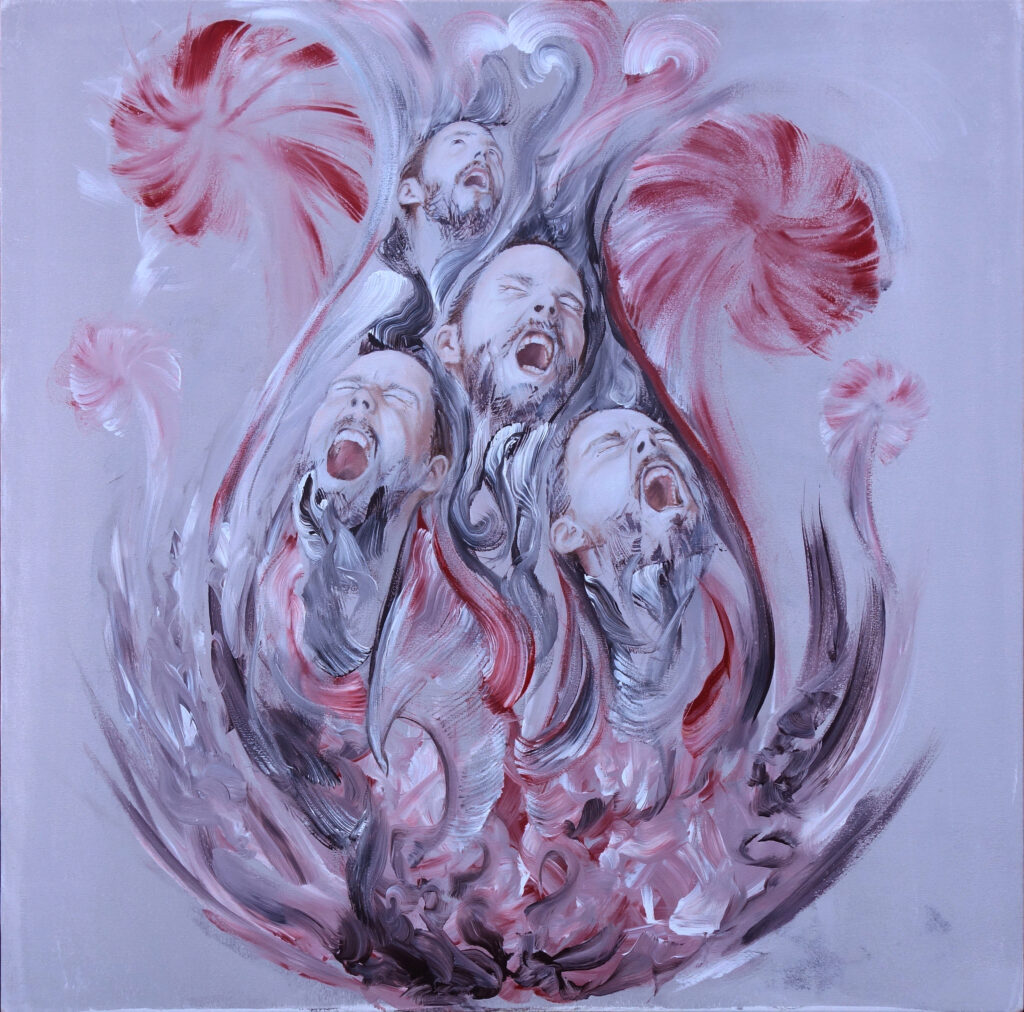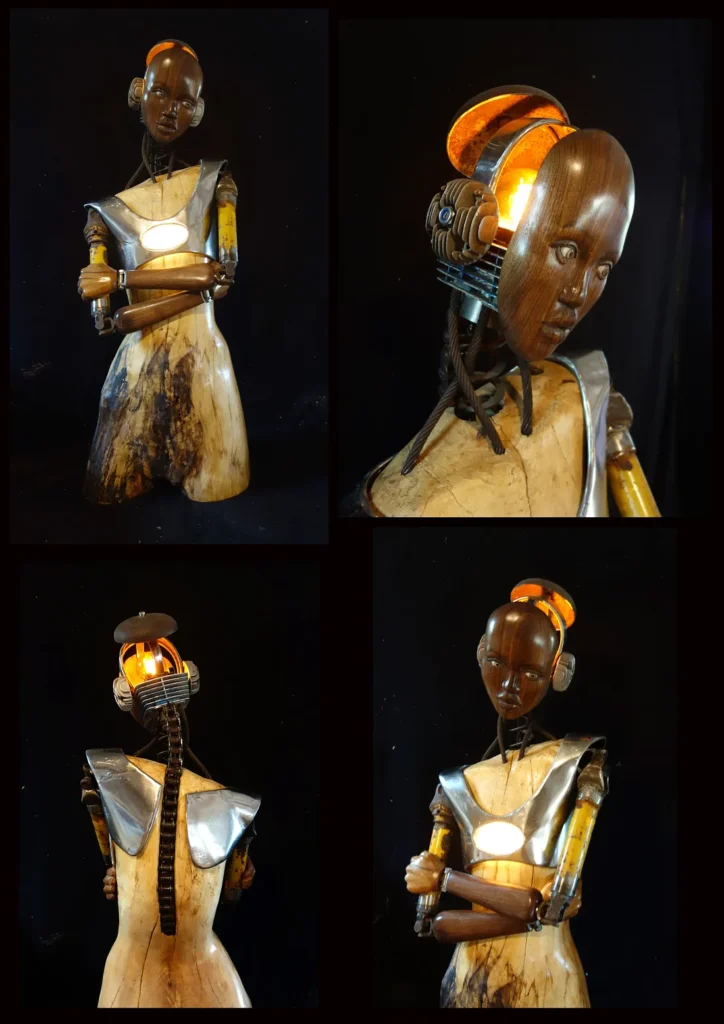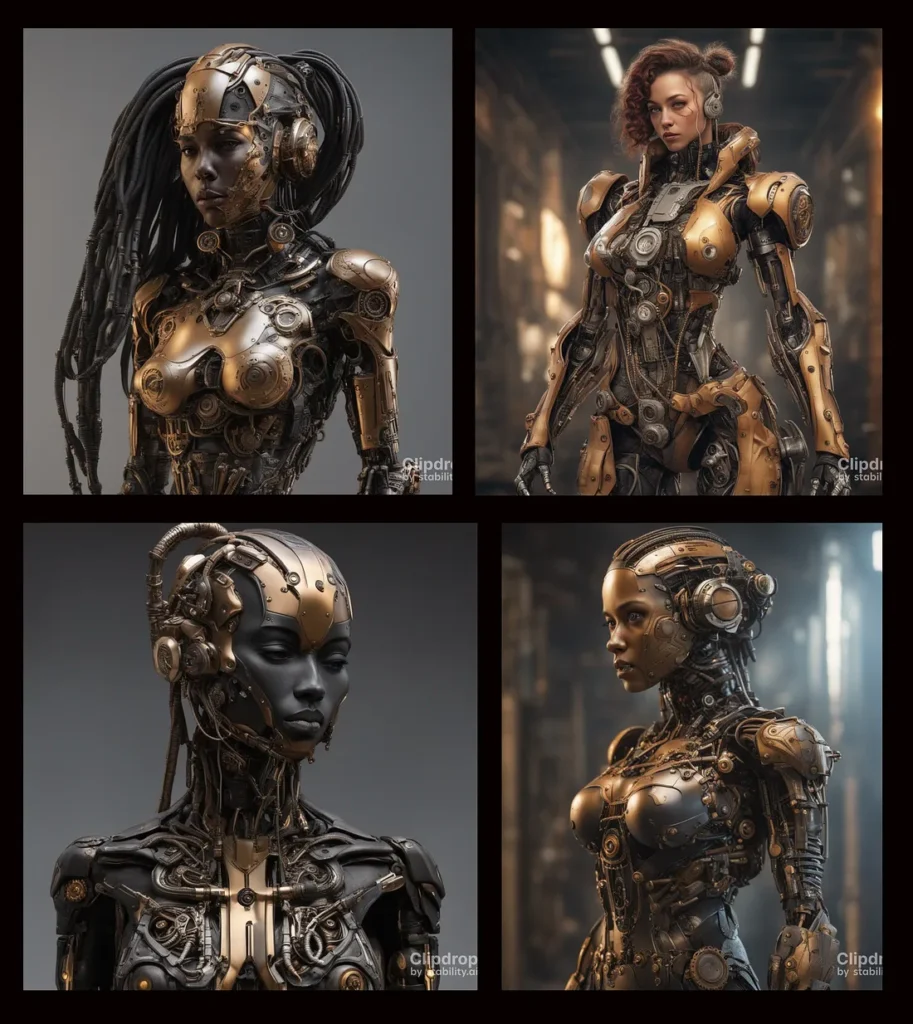Is the Online Artist Facing Obsolescence?
Existential struggles in the face of the AI revolution
By Ides Parmentier
Sep 1, 2023 (Read on Medium)

The public release of programs controlled by specific companies has put a machine in motion. It has been proliferating into increasingly numerous forms, both company-owned and open-source, and all of it has been getting better.
Some in the resistance keep claiming that what comes out of those machines looks like shit, that everything AI produces looks like shit, and that it is just ripping off human artistry. When I hear that, I‘m not sure to what extent they truly believe it or if they’re just putting out into the world what they want to be true.
What I see is the automated remixing of the whole history of human artistry as represented in online imagery, with the aim of making the giving of form to thoughts easily accessible to everyone as a service, requiring no inspiration, no effort, no artistry, and no creativity from the user.
To say it is just copying human art is too simple and reductionist. It’s also synthesizing images never before seen out of untraceable amounts of imagery. Sometimes it’s obviously derivative, especially when the user asks for something in the style of a real artist — something I don’t think the tech should allow for and which there should be regulations against, especially concerning living artists. Most of the time though it is impossible to say if it’s derivative of a specific human art piece or not.
To me, it seems more like all of humanity’s artistry is the raw material for the machine to produce content specifically to affect human perception in the way that human art does.
Human art is what it is because of how it affects us, so if you’re aiming to mechanically produce something with that specific type of effect, using all of humanity’s art as the raw material to train your machine makes obvious sense. The better you manage to bottom-trawl the depths of human creativity for the training process, the more superlative the results can be. It’s the tech industry’s appropriation of human artistic expression.
They were never going to ask for permission. Colonizers never do.
Before, giving form to thoughts was what artists were for.
People become artists because they feel a lot of inspiration. They feel like they are good at giving form to thoughts, or better than average at coming up with new representations, new styles, and new visualizations that catch people’s attention when they see them.
Artists aim to provide experiences of novel beauty, the experience of seeing something that shifts something internally, in your consciousness, in how you see the world, in how you see yourself, your fellow humans, your fellow earthlings, or any other aspect of experiencing life on earth.
Art speaks to people and art appreciation is subjective. But you could question whether the person who hates an AI art piece would hate it equally if they thought it had been made by a human.
You could say you dislike AI art because you dislike all digital art. I couldn’t argue with that. The only way you can really tell the difference, apart from the mutant hands and other weird flaws, is that often it just looks too good or too intricate. To then say AI art looks like shit is like saying that human limitation should be obvious in a piece before it can be considered beautiful, which is a tough argument to make.
I’m part of a Facebook group called Sculptors, a group celebrating human sculpting skills. For quite a while, the majority of the images in my feed posted to this group have been AI images, often of a human working on an impossible sculpture. I am one among many aggravated by this as we are there because of our love for human artistry in sculpting, not its digitally generated imitation. AI-generated imagery is ruining this group while the prompter labels themselves as a digital sculptor and labels this specific output from Midjourney as a tribute to sculpting. Like it’s already dead and we can move on from the real thing.
The ruin seems inevitable because the group is huge. There are endless amounts of people who are fooled into thinking it’s real and it doesn’t seem to matter how many times things are spelled out. Plus, thanks to the outrage of those who aren’t fooled, these AI images get even more engagement, so they get favored by the algorithm.
The thing is that AI can remix the best of what humanity has produced together with imagery of life produced by nature, so that synthesized sand-sculpture imagery ends up looking more alive than sand ever could in physical reality. You can recognize it’s AI because it’s physically impossible and then you can label it ugly if you want as a knee-jerk reaction, but it will easily out-compete the real in vying for people’s attention online if it’s mind-blowing enough.
Nature creates beauty in the eyes of humans.
Humans, as part of nature, create beauty.
Humans make a machine to remix human beauty creation. It recombines, maximizes, idealizes, and automates. It also obliterates any human limitation. Nothing is impossible. So when a master artist crafting at the edge of the physically possible, working for a hundred hours to produce a unique piece of artistry now wants to share their creation online, they have to compete with the endless amounts of imagery produced by a machine for which exceptional human artistry is just the raw material, ones and zeros so easy to reproduce that it can make in seconds what took the artist countless hours after years of practice.
For emphasis, I’ll share some pictures. The first group is of a sculpture I made recently that took me several months to complete. The second is from spending five minutes on Clipdrop, with no prompting experience. I just looked up “midjourney prompt cyborg” and made some variations on the first thing I found with my own sculpture in mind.
I for one do not feel creative when I type “full body female cyborg, full-length sculpture, detailed black face, wide hips, steampunk, cyberpunk, cyborg, honey-colored, intricately detailed, to scale, hyper-realistic, sculpture, black background”.
The feeling is more like “Please make roughly this for me and fill in the actual details according to what’s popular. And yes, please do most of the imagining for me.” I’m consuming a free service. I’m not making anything. Also, I don’t think this output would be mistaken for actual sculptures, nor are they full-body or full-length, so it didn’t even give me exactly what I asked for.


Our culture is a competitive one. To be successful as an artist online means doing well among all the others who are trying to do the same. It means succeeding in capturing people’s attention. And from now on it means competing with generators not bound by human limitations.
If copyright law does not get enforced, which I think it should, then any novelty any human could come up with could just be assimilated into the next update.
The main thing holding back copyright enforcement is that artists do not have a collective voice. It’s a horizontal field of individuals, not inclined to collective action, which is why the AI community didn’t hesitate or hold back in their attempt at colonization.
The reason why the same didn’t happen with music is not because the tech isn’t there. It is. The reason is the eagerness of the music industry to sue for copyright violations as part of their business strategy, forming a deterrent to AI company arrogance. There’s a lot to dislike about the music industry and its exploitative tendencies. But the very fact that they are big players who want to own and control all music and music creation is what stands in the way of easy colonization with AI. That is to say, it’s already colonized.

There will always be value in being an artist, in expressing yourself creatively, in the exploration of the act of creation, or in the play of not knowing where your imagination might take you while being fully open to wherever that might be.
Validation comes from the sense that others connect with the result, that it touches or stirs or awakens something in them, whether that can be put into words or not.
But will there be value in being an artist online, if we let the AI companies have their way, and AI comes to dominate the online world and everything digital? It’s hard for me to see how that could be the case.
I for one am in favor of human separatist online spaces; spaces by and for humans and for human-created content, instead of allowing spaces dedicated to art to turn into sinkholes for AI sludge drowning out the human. But I admit I’m pessimistic about it all and I’m increasingly convinced my energy is better spent offline.